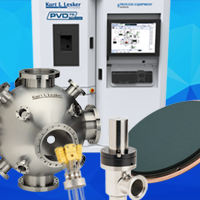What is Ryton® PPS
Syensqo Specialty Polymers’ Ryton® PPS (Polyphenylene Sulfide) is a semi-crystalline, high-heat polymer that is inherently flame retardant, offers excellent thermal stability, and exhibits chemical resistance comparable to PEEK and fluoropolymers.
- Micropowders for powder coating that can be applied to metal through EPC, fluidized bed.
- Outstanding chemical resistance to a wide variety of aggressive chemical environments.
- A remarkable combination of both long-term and short-term thermal stability.
- Inherent non-flammability without flame retardant additives.
- No known solvent below 200 °C
See below for a list of downloadable brochures and more.
SDS Files
Technical Data Sheets
Brochures
Ryton® PPS M2000 FP
Ryton® M2000 FP, a polyphenylene sulfide (PPS), is a nominal 50-micron powder grade, designed for applications including coating, sintering, and compression molding. Ryton® PPS exhibits excellent thermal stability and chemical resistance.
Ryton® PPS M2000 SFP
Ryton® M2000 SFP, a polyphenylene sulfide (PPS), is a nominal 25-micron powder grade, designed for applications including coating, sintering, and compression molding. Ryton® PPS exhibits excellent thermal stability and chemical resistance.
Oil & Gas
To coat couplings, connectors, and specialized metallic components that endure long-term H2S exposure at high temperaturesCoatings in high temperature, highly corrosive environments such as pipe couplings, pumps, valves, tanks, reactors, sucker rods, oil well tubing, fan drive discs, coil insulation in motors, masking insulation on electrodes used for electrowinning metals, etc

Physical Specifications
|
|
M2000 FP Typical Value Unit |
M2000 SFP Typical Value Unit |
Test Method |
|---|---|---|---|
| Density / Specific Gravity | 1.34 | 1.34 | ASTM D792 |
| Melt Mass-Flow Rate (MFR) 1 (316°C/5.0kg) | 100 g/10 min | 100 g/10 min | ASTM D1238 |
| Water Absorption (24hr, 23°C) | 0.05% | 0.05% | ASTM D570 |
| Ash Content | 0.10 wt% | 0.10 wt% | ISO 3451-1 |
| Average Particle Size - D50 | 50 μm | 25 μm | Internal Method |
Thermal Specifications
|
|
M2000 FP Typical Value Unit |
M2000 SFP Typical Value Unit |
Test Method |
|---|---|---|---|
|
Deflection Temperature Under Load 1.8 Mpa, Unannealed |
95.0 °C | 95.0 °C | ASTM D648 |
| Glass Transition Temperature | 90.0 °C | 90.0 °C | ISO 11357-2 |
| Vicat Softening Temperature | > 180 °C | > 180 °C | ISO 306 |
| Melting Temperature | 280 °C | 280 °C | ISO 11357-3 |
| CLTE - Flow (-50 to 50°C) | 5.0E-5 cm/cm/°C | 5.0E-5 cm/cm/°C | ASTM E831 |
Electrical Specifications
|
|
M2000 FP Typical Value Unit |
M2000 SFP Typical Value Unit |
Test Method |
|---|---|---|---|
| Volume Resistivity | 1.0E+16 ohms*cm | 1.0E+16 ohms*cm | ASTM D257 |
|
Dielectric Strength 1.50mm thick specimen 100μm thick film |
24 kV/mm 90 kV/mm |
24 kV/mm 90 kV/mm |
ASTM D149 |
| Dielectric Constant (25°C, 1MHz) | 3.20 | 3.20 | ASTM D150 |
| Dissipation Factor (25°C, 1MHz) | 2.00E-03 | 2.00E-03 | ASTM D150 |
What does “PPS” mean?
PPS stands for Polyphenylene Sulfide.
What is the color of your material?
The color of these materials is a natural color, which ranges between tan to off-white.
How can this material be applied?
Ryton® PPS M2000FP and Ryton® PPS M2000SFP can be applied via powder spray.



